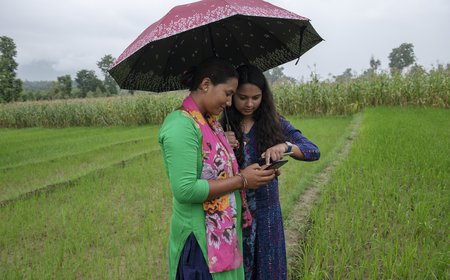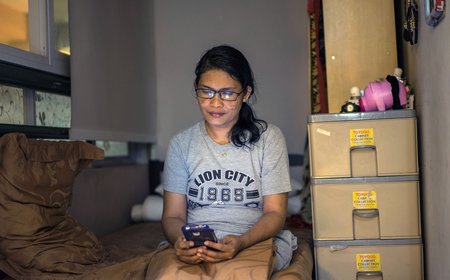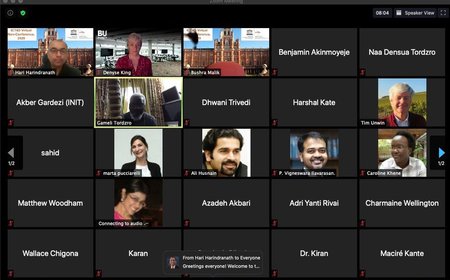Uses of digital technologies by migrants in South Africa
This working paper was originally published via UNESCO Chair in ICT4D. The paper is authored by Tim Unwin, Faisal Garba, Mendy Lerato Lusaba, Maria Rosa Lorini, and G. Hari Harindranath.
This working paper forms part of the output of Work Package 9 on technology, inequality and migration within the MIDEQ Hub, a multi-disciplinary research project in 12 countries of Latin America, Africa and Asia, including the Ethiopia-South Africa migration corridor. It presents the results of an online survey of 297 respondents mostly currently living in South Africa (92.2%), and mainly from Ethiopia (59.8%); 92.7% of them identified themselves as migrants, with the remainder being family members of migrants (6.2%) or returned migrants (1.1%). Following a summary of the methodology, which explains the impact of COVID-19 on this research and why an online survey was used to replace our originally planned interviews and focus groups, the paper provides an overview of the most important results and an exploratory data analysis, focusing on the potential influence of age, gender, countries of origin, migration status, and occupational status on the ways in which respondents use digital technologies and for what purposes. Three important conclusions for the subsequent stages of our research on the inequalities associated with migration and how digital tech may be used to reduce these are: first, the migrants responding to this survey are from very different backgrounds, and these have some strong influences on their use of digital tech; second, very few migrants make any use at all of apps made specifically for them; and third, many migrants still appear to need basic training in the safe and secure use of digital technologies.



